United Kingdom
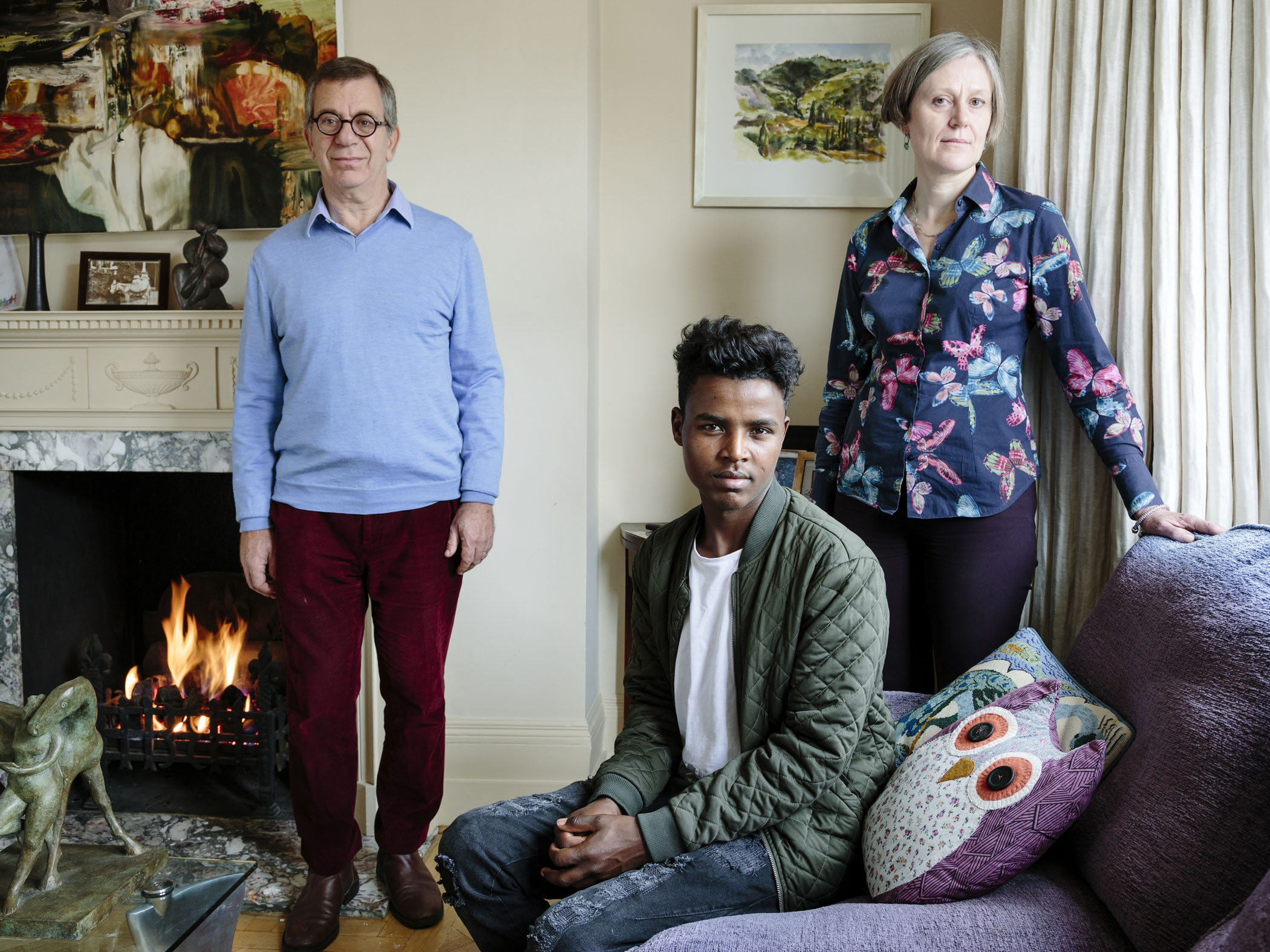
Ethiopia to United Kingdom
Charles Elliott (61) and wife Catharine (55) have been hosting Hussein (20) a refugee from Ethiopia since October 2016. Hussein fled because his father is a political prisoner.
Charles’ parents were refugees from Germany, so hosting people in need of international protection resonates strongly with him.
“The big smiles and gratitude, it’s beautiful to live with. You just learn how to communicate even if you don’t speak the same language. It’s very difficult to resettle.”
Hussein said his journey has been extremely difficult but he is happy in the UK.
“I often wake up scared because when I escaped through Libya and they were shooting people in front of me. It was too much. Sometimes I think too much, get sad, and can’t sleep. But generally I am happy now. I enjoy class, I want to study, learn more and maybe one day become a neurologist.”
Catharine has raised two young boys who have now moved out.
“The difference between London-born and Ethiopia-born teenage boys is minimal. Teenage boys the world over are the same. They don’t realise sheets need changing and that laundry doesn’t walk away on its own. You just have to train them in the nicest way.”
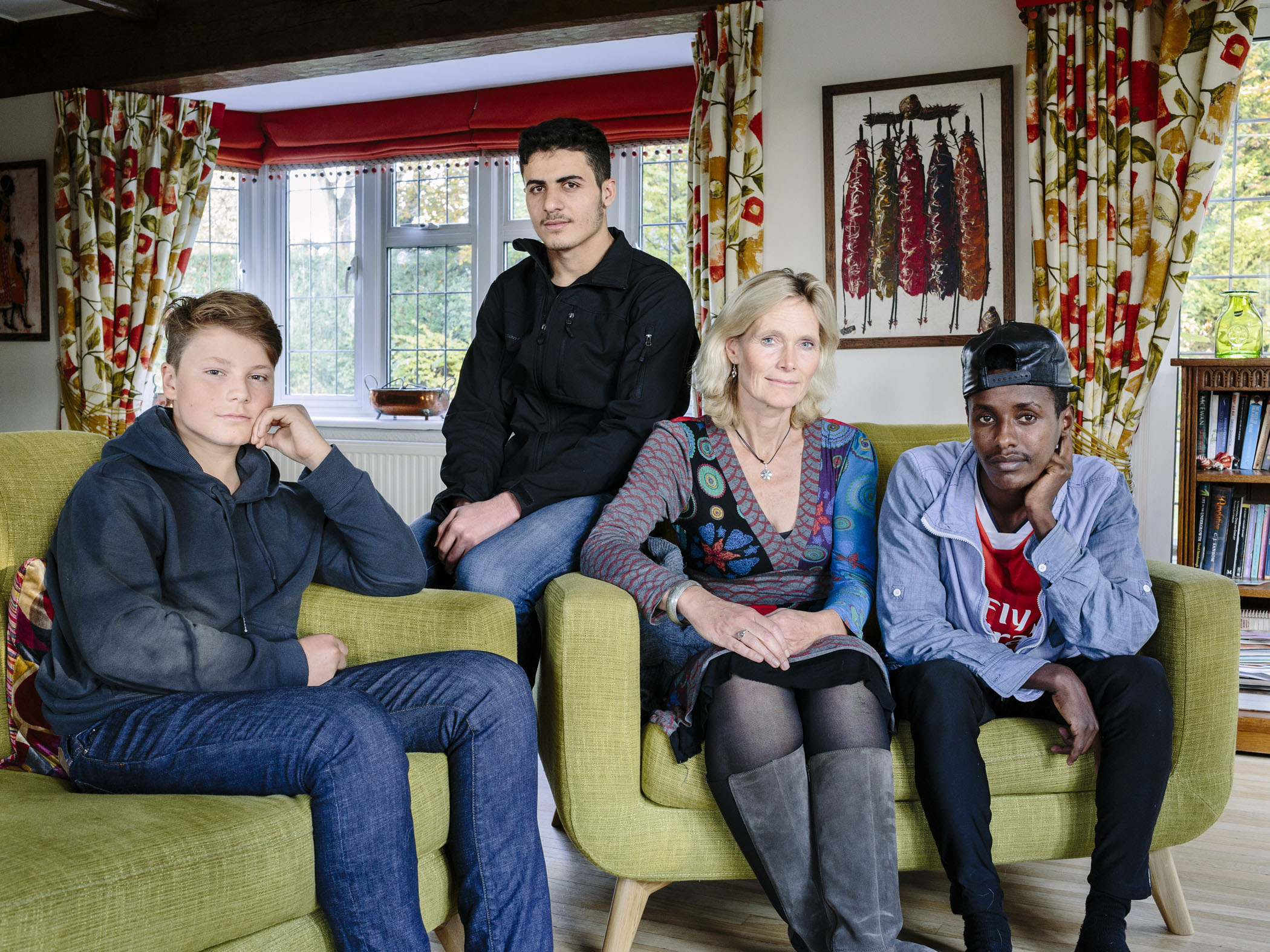
Ethiopia and Syria to United Kingdom
Ingrid Van Loo Plowman, a volunteer and former doctor, and her youngest son Ross host three refugees in their home in Epsom, near London: Isak (18) from Ethiopia, Abdul (19) from Syria and a 31 year old engineer from the Middle East who declined to be photographed for security reasons.
“Ingrid is a super mum”, Abdul says. “She helps me with everything. I missed my family so much but when I came to live with Ingrid even my own mum said ‘are you forgetting about me?’. I really hope one day I can work and repay her somehow. My life has changed 180 degrees, all thanks to her.” Abdul studies English full time and wants to do civil engineering at university.
“In Syria, I would have been in college by now,” Abdul adds. “Here, I am still studying English. I have started from zero again. It is not an easy life, it’s difficult. It’s hard to adapt to this new language and culture, even here with this wonderful family. It’s not easy but I won’t give up.”
Ingrid says “He is like my son. I’m really proud of him and so impressed with his resilience and good character. He is a wonderful example for my young son. I always tell them one day you pay me back by having a good job and speaking good English.”
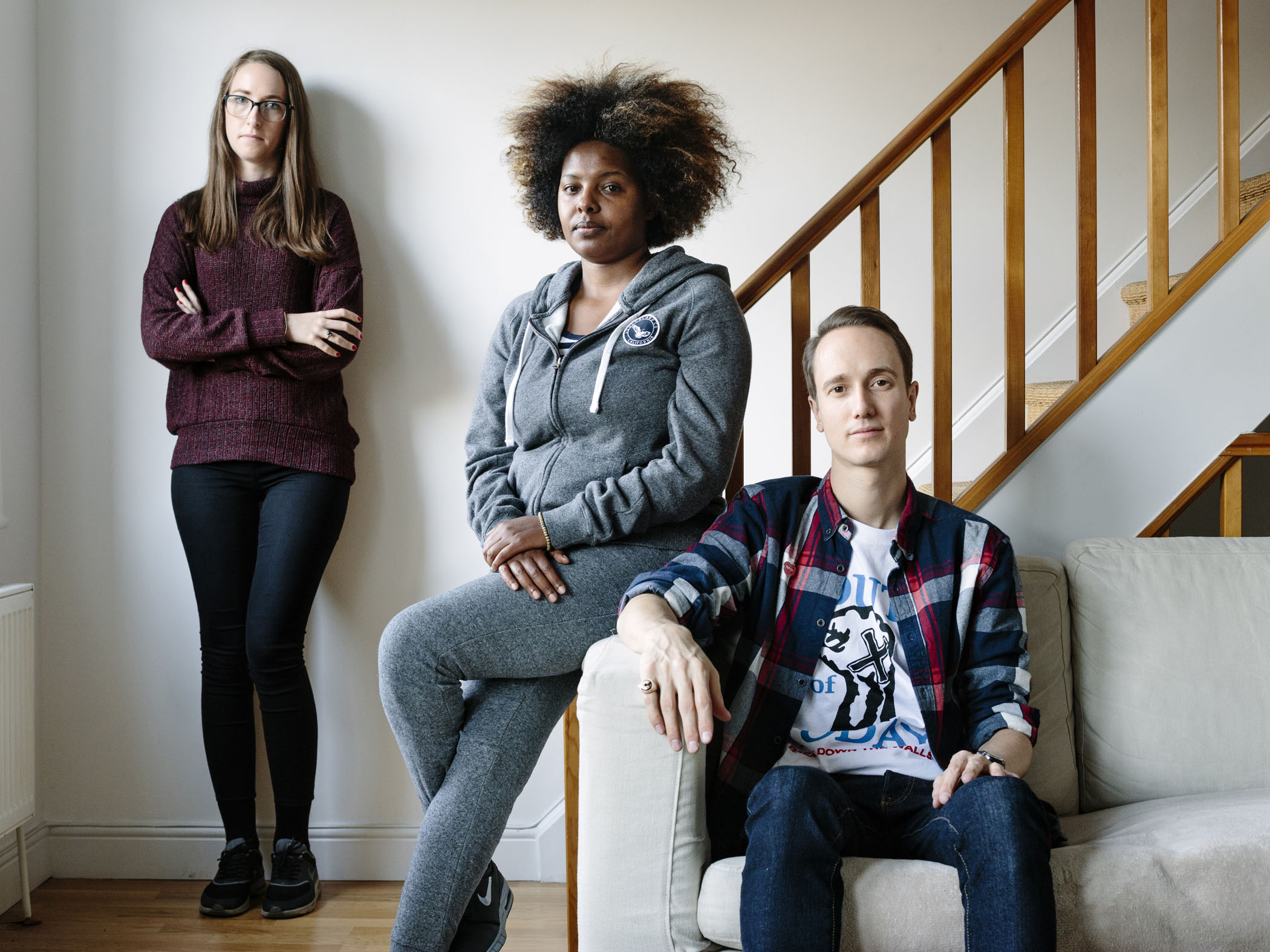
Sudan to United Kingdom
Australian social worker Emily Reynolds and her Dutch boyfriend Gijs Van Amelsvoort are hosting Areej, a refugee from Sudan, in West London.
The three spend time together watching movies and sharing meals. Areej (30) knows all too well how difficult it is to start a new life in a new country. She has a master’s degree from Nottingham University in environmental management but spends most of her time volunteering as an interpreter for asylum seekers in shelters and as an English language tutor.
“It’s almost harder being a refugee because as an asylum seeker you get housing and three meals a day but as a refugee you are completely on your own after 28 days,” says Areej. “This is one of the best things that happened to me. I feel at home.”
“We get along really well and that’s the most lovely, surprising thing that happened – we became friends” Gijs says. “Refugees are people too and there is a stigma but they are just people. We have more than we need and are able to share, it’s a privilege because it makes us happy as well.”
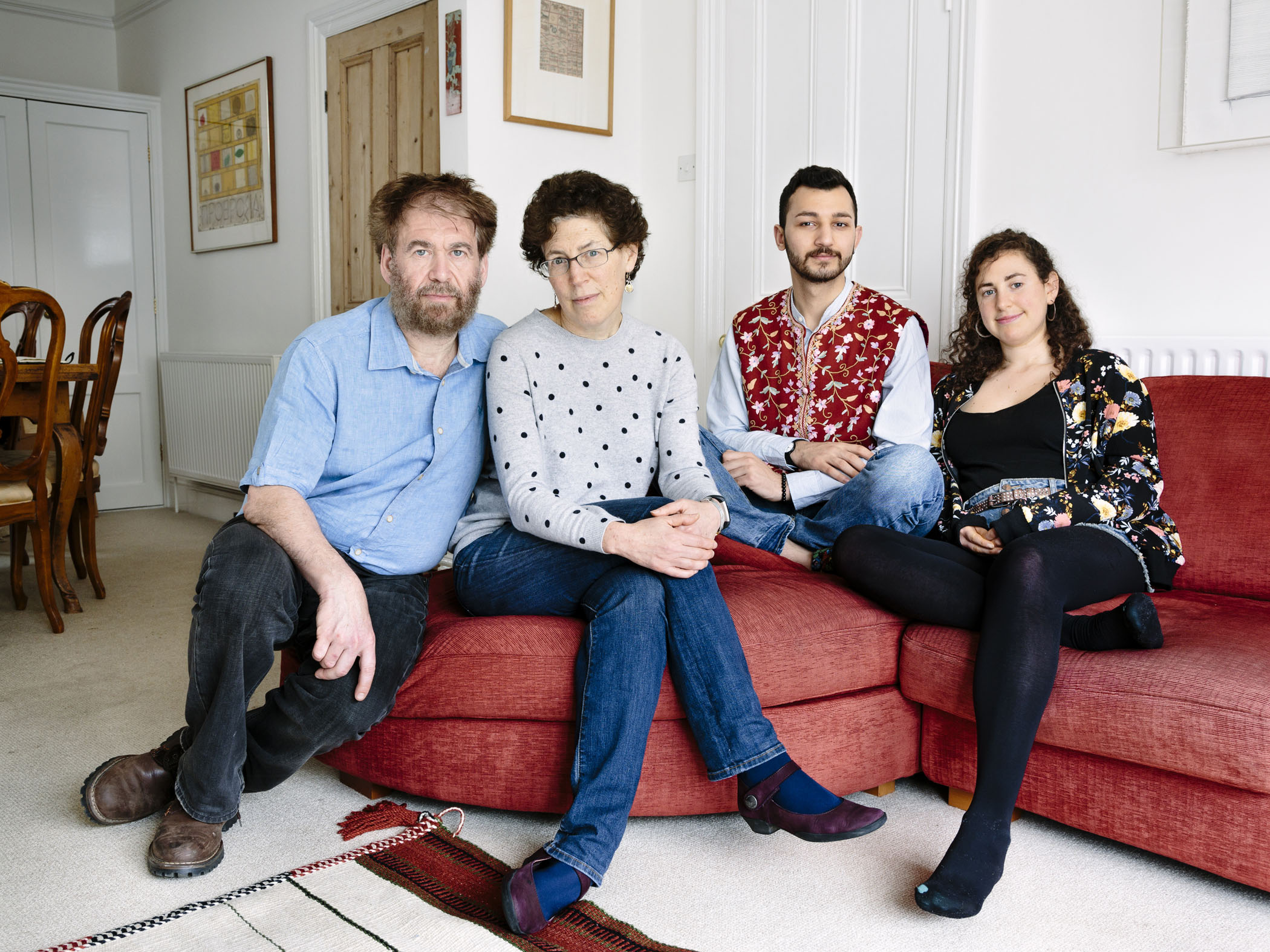
Syria to United Kingdom
Simon Goldhill, professor of Greek literature at King's College, Cambridge, his wife Shoshana, a lawyer, and their daughter, Sarah, 27, who is studying medicine, are hosting Faraj, 21, a refugee from Syria in their Cambridge home.
Faraj, 21, fled war-torn Aleppo in 2012 and arrived in the UK in 2015. A friend introduced him to an organization called Refugees At Home, which matches refugees with hosts, and in September 2016 he was welcomed by the Goldhills. They quickly became extremely close.
“He comes from a very orthodox Islamic background and then he comes to a very Jewish family,” says Simon. “He prays five times a day and then comes to synagogue with us and helps the rabbi. This is a testament to who Faraj is. He sees our differences but never has an issue.”
“It’s incredible, he just fits in so easily and quickly in our family,” says Sarah. “It’s impossible not to adore him.”
Shoshana says Faraj is “very open-minded. Even after everything he has been through he is such a gentle soul and such a lovely, positive person.”
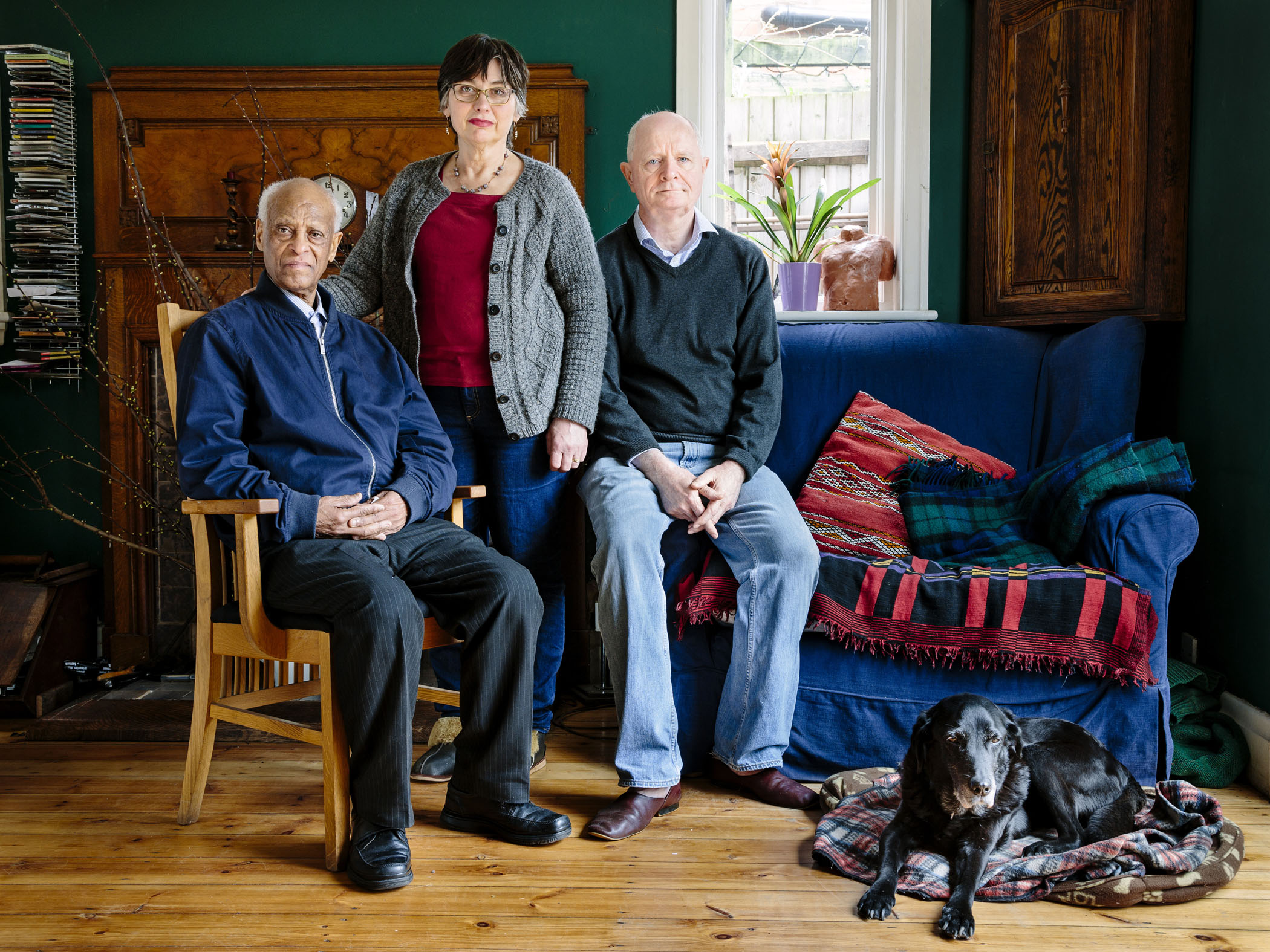
Eritrea to United Kingdom
Hilary Parle (63), a retired GP and her husband Jim, a professor of family medicine at Birmingham University, are hosting Yonasskindis (named changed), a 72 year old Eritrean refugee, who fled his country after receiving death threats.
Jim and Hilary decided to host refugees after hearing the tragic story of three-year-old Syrian refugee Aylan Kurdi, whose body washed up on a Turkish beach in 2015. When his asylum application was rejected, Yonasskindis was evicted from his accommodation and might have been homeless had it not been for the Parles.
“They are like my brother and sister,” Yonasskindis says. “This feels like my home, they are like my family. I have the keys, no restrictions, no nothing. If it wasn’t for them I would be on the street.”
“We saw the picture of the toddler lying face down on the beach and that was it,” Hilary says, “We had to do something.”
“It’s been remarkably straight forward. We both sit together, drinking tea and reading” Jim says.
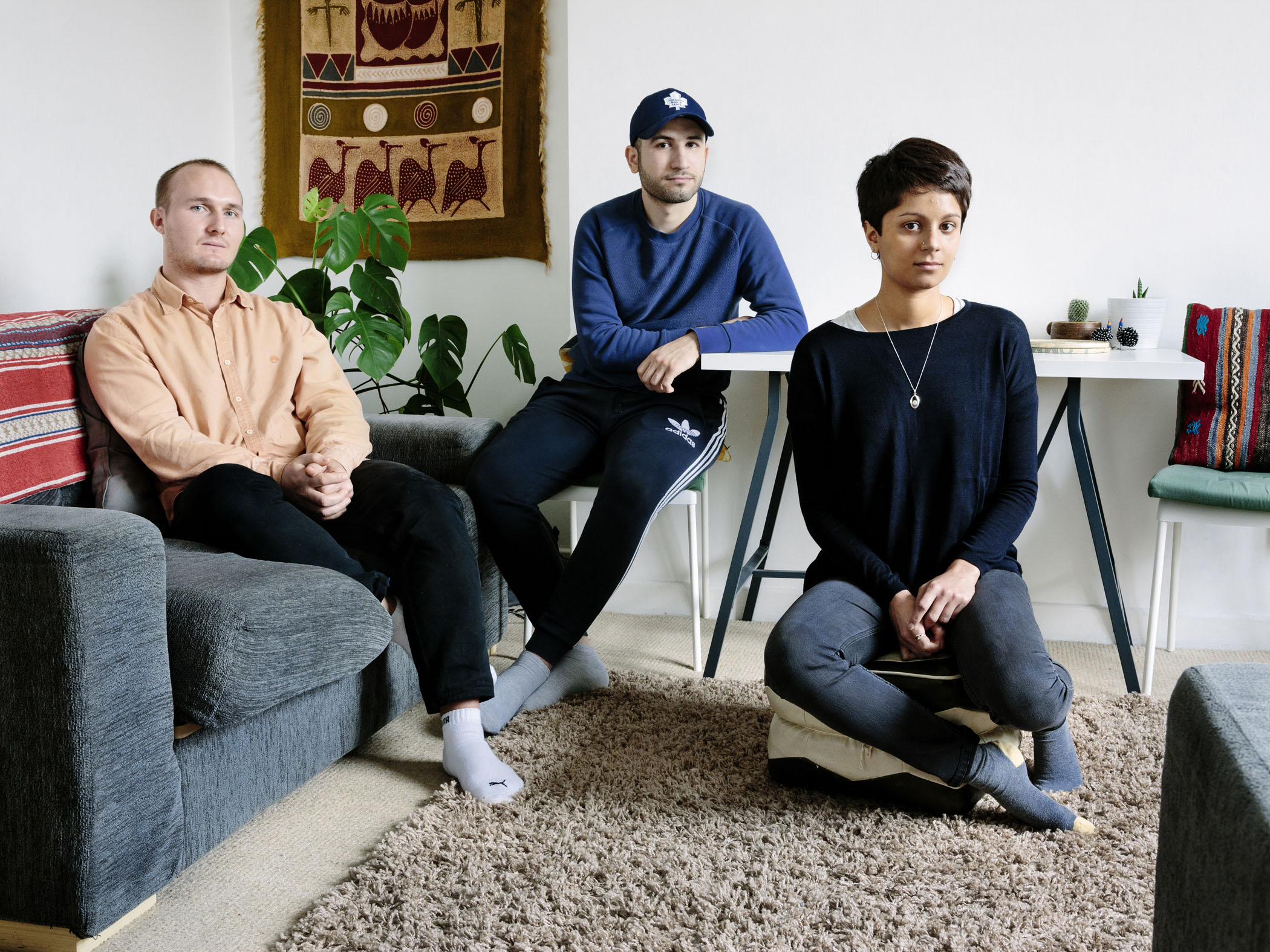
Syria to United Kingdom
Hamish Dunlop (26), a bridge engineer, and Tamsin Chowdry (25), a social work student, have been hosting 27 year old Hassan, a refugee and former agricultural engineering student at Damascus University, since March 2017.
Hassan and Hamish enjoy watching sports together, and they each have their chores around the house.
“After everything refugees go through to make it to the UK, we thought Hasan might be hardened from the experience,” says Hamish. “I think that is the thing that really surprised us the most, that despite everything, Hasan is so gentle, so polite, and calm.”
Hassan says that, at first, he was nervous about living with strangers. “They are from a different culture, have a different language,” he says.
“I tried to stay positive and knew it was my only chance to learn English and adapt. Plus, we are similar in age and they are so nice.”
